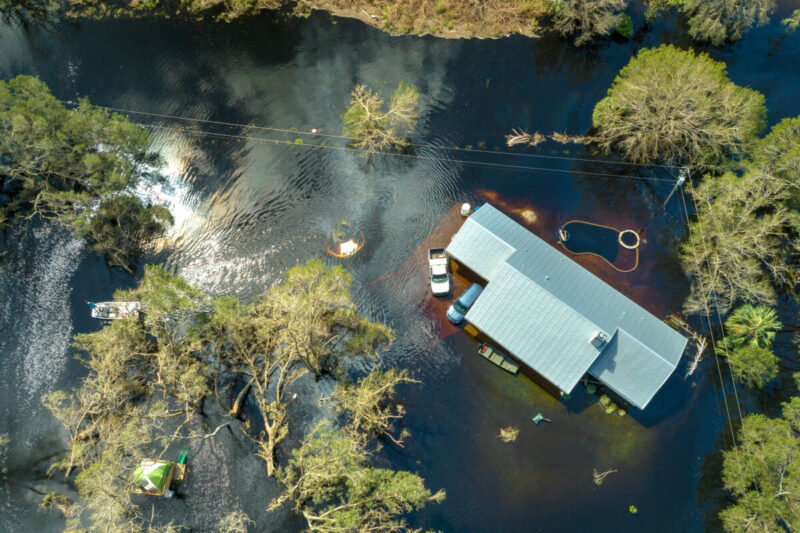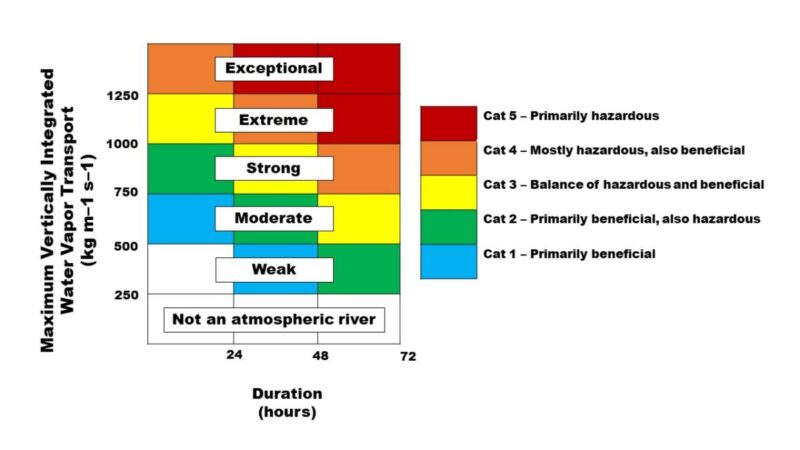The term “atmospheric river” is heard most often during heavy rain events that typically lead to flooding, but this weather phenomenon is so much more than that. Here’s what you should know.
What Is an Atmospheric River?
Atmospheric rivers are long, narrow concentrations of moisture in the atmosphere that transport water vapor from one point to another — like a river in the sky, which is how they get their name. The amount of water vapor flowing through the average atmospheric river is equal to the amount of liquid water flowing through the mouth of the Mississippi River.
All that water vapor eventually condenses and falls in the form of rain or snow. Often, this is associated with heavy precipitation and sometimes extreme weather events. Incidents like this disrupt travel, cause flooding and mudslides, and deal damage to life and property.

MORE: When to see December’s Geminids meteor shower
These types of weather patterns occur all around the world. As the U.S. Department of Energy notes, they are responsible for 90% of the movement of moisture from the tropics toward the poles.
This makes them an important part of the Earth’s climate.
How Does an Atmospheric River Work?
Atmospheric rivers get their start when winds over tropical ocean waters force water vapor into a narrow band of concentrated moisture. These newly formed “rivers” are typically 250-375 miles wide and more than a thousands miles long, the National Oceanic and Atmospheric Administration notes, meandering and flowing with the weather patterns of the world.
Once it reaches land, mountains and strong winds force the water vapor upward, causing it to condense and fall as rain or snow, depending on temperature and elevation.
Most atmospheric rivers last a day or less, but extreme events can last for up to a week.
Atmospheric Rivers Play a Key Role in the Water Cycle
Atmospheric rivers provide beneficial rain and snow crucial to the water supply all around the world. Many coastal communities get more than half their annual rainfall from different events within a single rainy season.
In these locations, atmospheric rivers are critical to the environment and agriculture and as a source of water. In the western U.S., for example, atmospheric rivers have ended years-long droughts in the past.
Some atmospheric rivers are so commonplace, they’ve earned names, like Pineapple Express.
The Pineapple Express is a fairly common atmospheric river that forms over the Hawaiian tropics and follows a path to western North America, eventually landing anywhere from Southern California to British Columbia, Canada.
Atmospheric Rivers Have a Rating System Similar to Hurricanes
The Center for Western Weather and Water Extremes created a scale that ranks atmospheric rivers from weak to exceptional in strength.
This ranking is determined by the amount of moisture and the storm duration to determine a ranking from one to five. An atmospheric river on the low end of the scale is primarily beneficial while one on the high end of the scale is mostly hazardous, and any storm in between is a combination of both.
MORE: Both farmers’ almanacs have released their winter weather predictions

It’s important to remember atmospheric rivers, regardless of when and where they occur, can be both beneficial and hazardous, depending on the amount of moisture and their duration.
So when one is forecasted for your area, pay close attention to local forecasts to learn how it may affect you.
Jason Meyers is a meteorologist and nature enthusiast who has made a number of entertaining and educational YouTube videos.
What is an atmospheric river? Here’s what to know about this weather phenomenon originally appeared on Simplemost.com, helping make the most out of life.
> > SIGN UP for the Simplemost weekly newsletter < <



